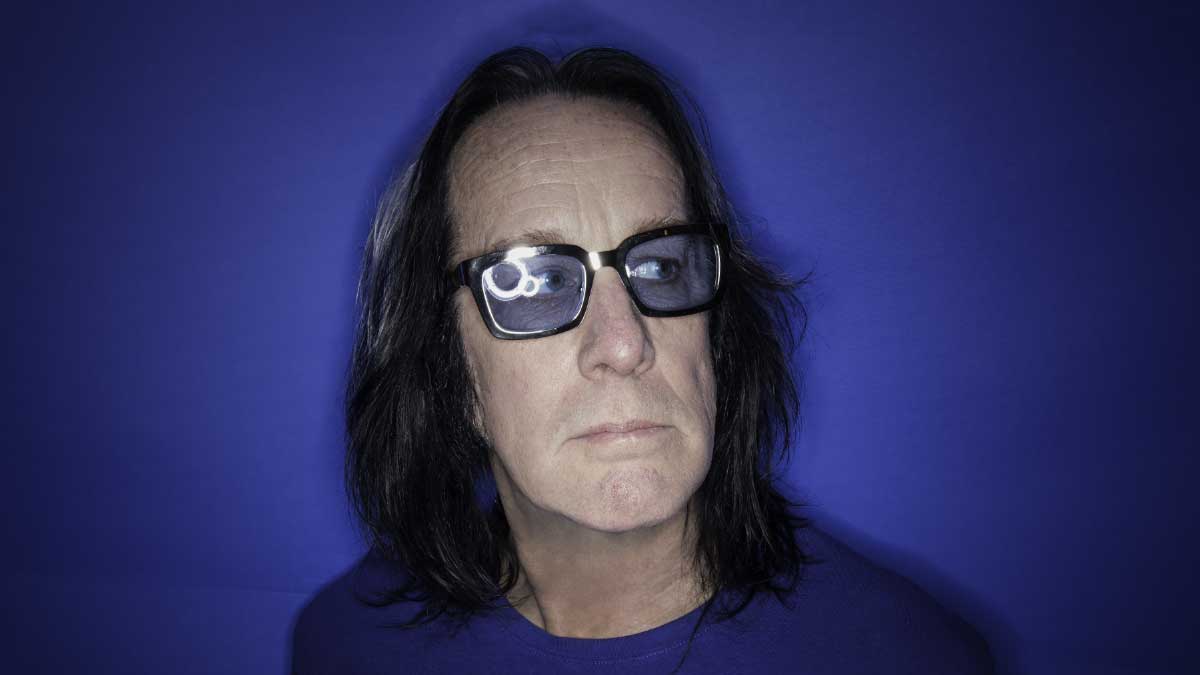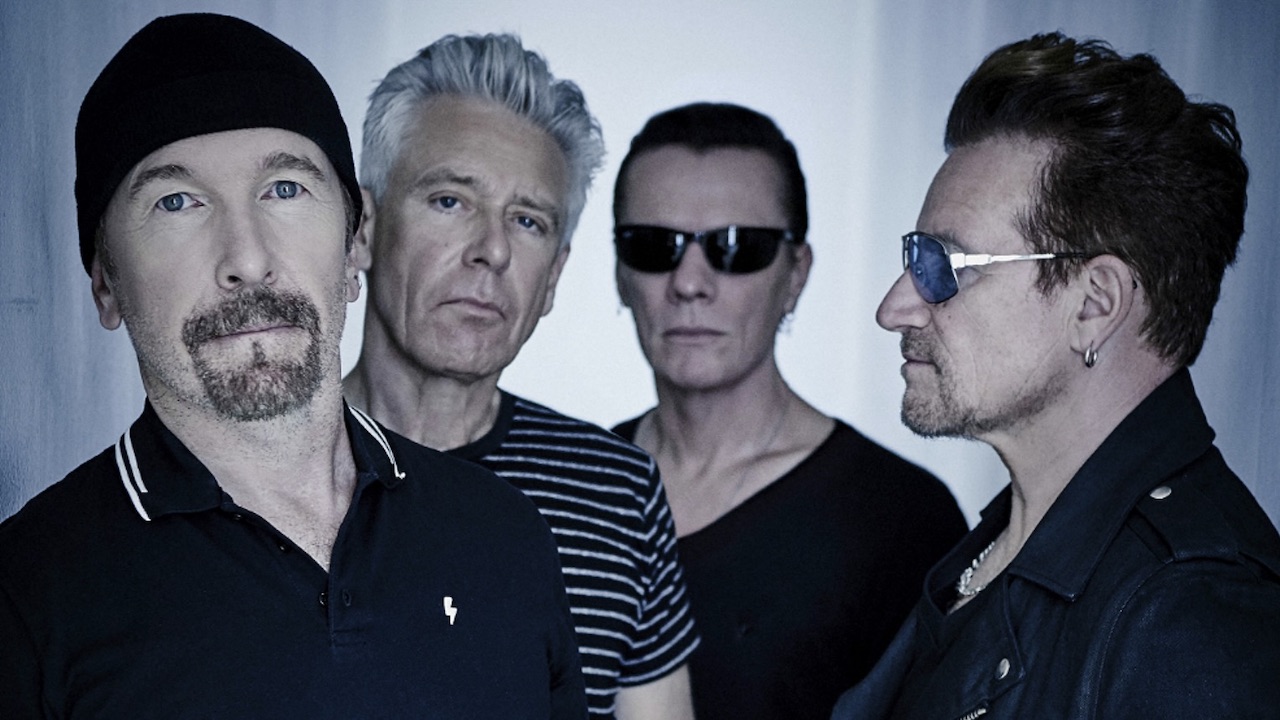"It's pretty amazing that rock lasted for seventy-five years": Todd Rundgren on the demise of rock, fighting hate and why listeners don't like albums
Why you should expect the expected and the unexpected at Todd Rundgren's upcoming shows

Select the newsletters you’d like to receive. Then, add your email to sign up.
You are now subscribed
Your newsletter sign-up was successful
Want to add more newsletters?

Every Friday
Louder
Louder’s weekly newsletter is jam-packed with the team’s personal highlights from the last seven days, including features, breaking news, reviews and tons of juicy exclusives from the world of alternative music.

Every Friday
Classic Rock
The Classic Rock newsletter is an essential read for the discerning rock fan. Every week we bring you the news, reviews and the very best features and interviews from our extensive archive. Written by rock fans for rock fans.

Every Friday
Metal Hammer
For the last four decades Metal Hammer has been the world’s greatest metal magazine. Created by metalheads for metalheads, ‘Hammer takes you behind the scenes, closer to the action, and nearer to the bands that you love the most.

Every Friday
Prog
The Prog newsletter brings you the very best of Prog Magazine and our website, every Friday. We'll deliver you the very latest news from the Prog universe, informative features and archive material from Prog’s impressive vault.
As his latest tour titled Me/We continues, iconic singer, songwriter, multi-instrumentalist, producer and industry maverick Todd Rundgren previews three rare British shows, at the Sub Rooms in Stroud, The Alexandra in Birmingham and the Palladium in London.

Two summers ago you played London’s Hammersmith Apollo on a bill with the newly solo Daryl Hall. Was that a good combination?
Yeah. Even before getting to London I had done quite a few months of touring with Daryl in a stint that also took us to Asia. Afterwards I think Elvis Costello took over as Daryl’s opener.
Were the two of you a match stylistically, though?
Oh yeah, we’re both Philly [Philadelphia-born] guys and we grew up listening to the same kind of music. I produced one of the early Hall & Oates albums [1974’s War Babies, on which he also played guitar], so there’s a long association.
This time, presumably there’s nobody else on the bill so audiences with be getting a nice long set.
Yeah, for sure. Normally we play for around two hours. Because the show is stretched so long, we don’t usually have an opening act. Also, I’m not a ‘genre artist’ – I don’t play one particular style of music.
Sign up below to get the latest from Classic Rock, plus exclusive special offers, direct to your inbox!
With between thirty and thirty-five albums by now, there’s a lot of ground to cover. Can you give any hints as to some of the songs you’ll be playing?
I’m sure it will have been published somewhere [on the internet]. It usually is. We did this tour [Me/We] last year, and because I didn’t come up with any new music in the interim and there isn’t a new album to promote it hasn’t changed a great deal.
I still sing about the world, you know… how we relate to each other, and things have changed so much within a year. Me and my fans – the people that come to the shows – we need each other even more now than ever.
In the wake of last year’s US election, you are urging us to be the best version of ourselves, also to refrain from fighting hate with hate.
[Nodding enthusiastically] Yes, but it’s very difficult. These are dark times and so many evil people occupy high places. That presents so many dark thoughts. You ask: How do we get through this? The only way is to depend on each other and assume we have good intentions. I try to think of [the situation] as a mistake. I don’t like thinking that the people that have become leaders represent us from a moral standpoint. Let’s stand up for the things we believe in, despite the fact we have lost control of the narrative.
On a lighter note, have you ever played at the London Palladium before?
I don’t believe I have, though I did play Hammersmith, which was then the Odeon and now the Apollo. I even played Ronnie Scott’s Jazz Club. I’ve played most places around town, though I’m yet to play the Royal Albert Hall, I know that.
But you are familiar with the Palladium’s reputation.
I’ve walked past several times but never been inside. I believe it’s more of a place of traditional music hall and light entertainment than a regular concert hall, and I prefer those to the usual sheds.
As someone who has predicted so many things, including the rise of the internet, how do you feel about the long-term future of rock music? Has it even got one?
I am amazed that people still use that term. It’s become a sub-genre. You can’t say that anything Taylor Swift does is rock, even though she is the highest paid artist in the world. A lot of it [the decline of the genre] has to do with changes in the market. Guys – a traditional target of rock – now spend their money on videogames instead, and the female audience is now the largest for music. We have some serious female rockers, but Joan Jett doesn’t dominate the music scene. Now it’s about Lady Gaga and Taylor Swift. Female artists are filling arenas and stadiums.
It doesn’t help that the Black Sabbaths of this world are dying out.
That’s also a big part of what’s happening. There was an era when male musicians of that era were ubiquitous. Now they’re kind of hard to find. [What they did] has now become a niche, almost. The whole nature of music is that it gets replaced. It’s pretty amazing that rock lasted for seventy-five years.
It’s almost three years since you released your last album, Space Force. Do you still believe in the concept of the full-length record?
I do. The problem is that listeners don’t any more [laughs]. Nobody puts aside forty minutes of their day to sit down and listen to a whole record any more. But I don’t care, I’m going to keep making them anyway. I start a new record as soon as I finish this tour.
Having accomplished so much in your 58-year career, what still remains for you in terms of unticked boxes?
I did harbour an ambition to become an actor, but I realised I’m very happy with where I’m at. I’m having too much fun being me, why pretend to be someone else?
Todd’s UK shows are in Stroud on October 27, Birmingham 28 and London 29, before returning to the US for shows in November. Check his website for tickets.

Dave Ling was a co-founder of Classic Rock magazine. His words have appeared in a variety of music publications, including RAW, Kerrang!, Metal Hammer, Prog, Rock Candy, Fireworks and Sounds. Dave’s life was shaped in 1974 through the purchase of a copy of Sweet’s album ‘Sweet Fanny Adams’, along with early gig experiences from Status Quo, Rush, Iron Maiden, AC/DC, Yes and Queen. As a lifelong season ticket holder of Crystal Palace FC, he is completely incapable of uttering the word ‘Br***ton’.
You must confirm your public display name before commenting
Please logout and then login again, you will then be prompted to enter your display name.

